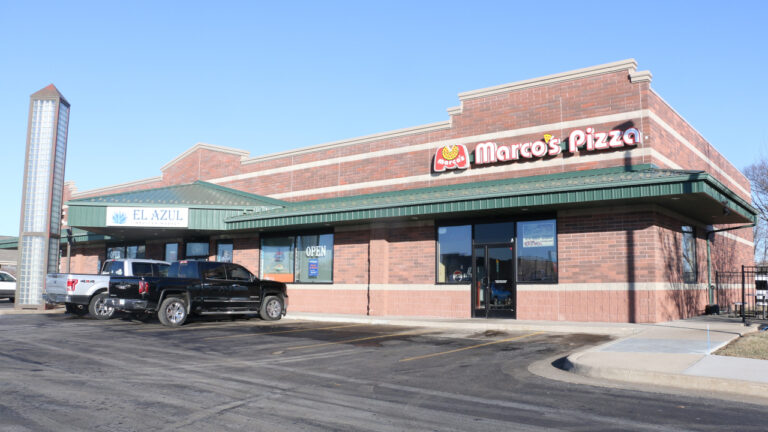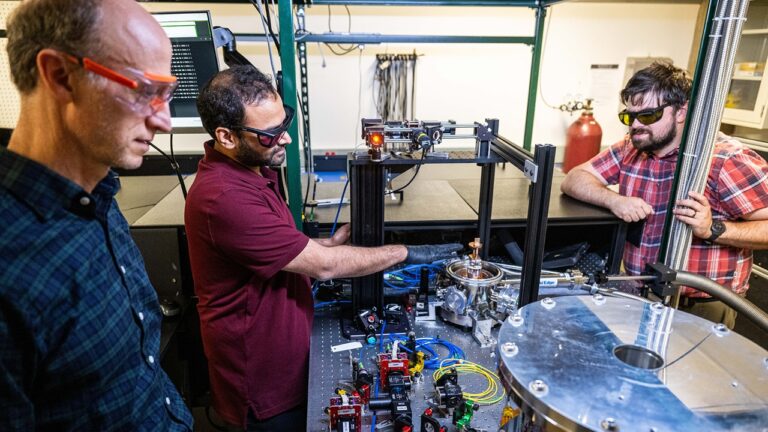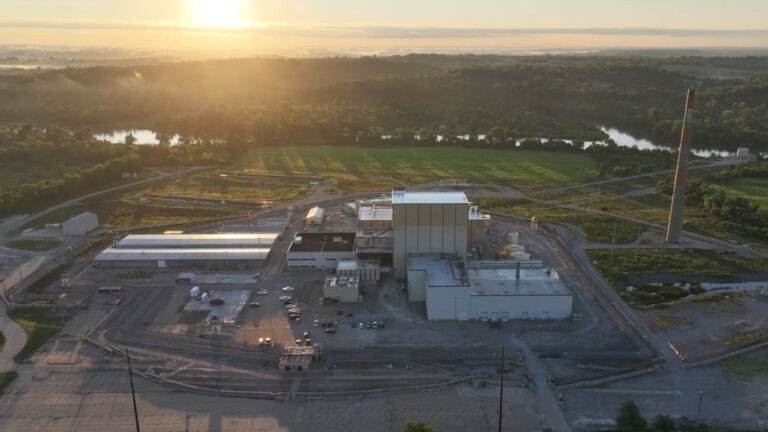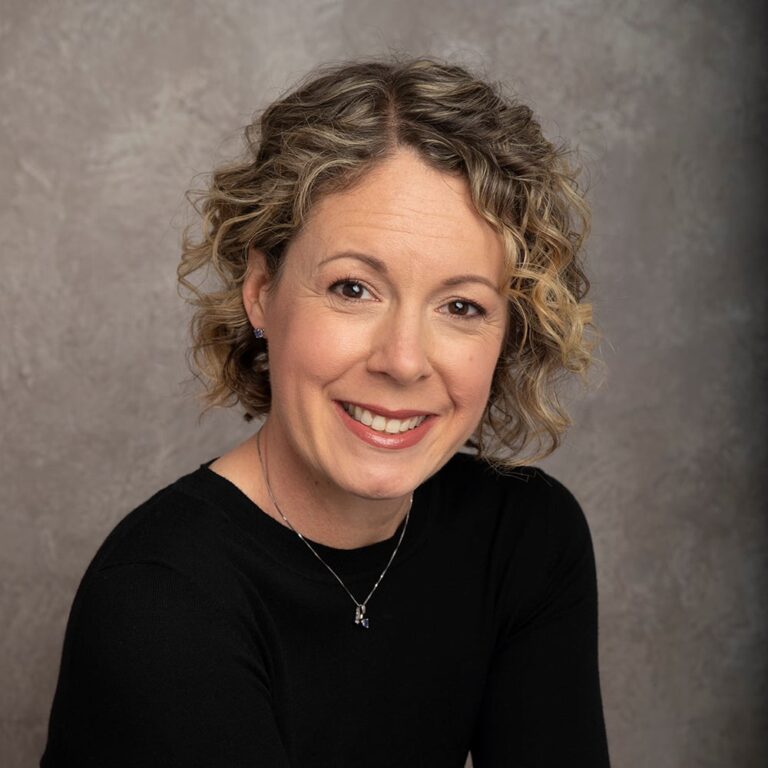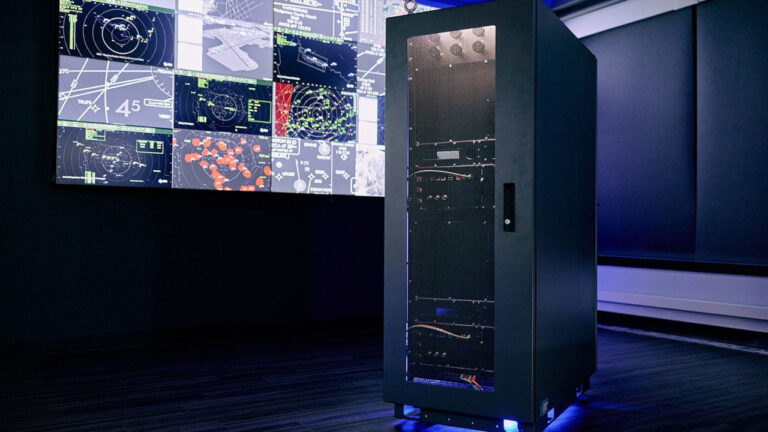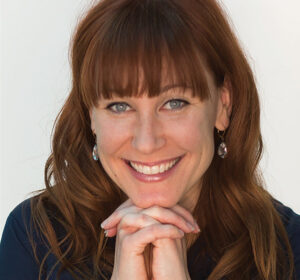
Leslie Nolte is the celebrated entrepreneur and artist behind the Nolte Performing Arts Academy, The James Theatre, and the forthcoming ICON Arts Academy high school in Iowa City that will welcome its first boarding students in August 2023.
Leslie shares with me how injuries forced her to reevaluate her career as a professional dancer, what she learned from her six months away from the arts working for State Farm, and how, when she couldn’t find one for her in the area, she created her own opportunity. She also explores the feeling of success when her name became a noun, how she navigates the struggle for balance in her life, and how she believes ICON Arts Academy will change lives and the Iowa arts landscape.
I learned a lot, and I think you will too.
Sponsored by MidWestOne Bank, this is the latest edition of the CBJ’s new podcast feature with Nate Kaeding and notable Iowa business and cultural leaders, available first to CBJ members. Listen to this episode below, and subscribe on Spotify, iTunes, Google Play, Stitcher.
NK: Let’s start with your time at the
University of Iowa. You were working toward being a performer, but was there always this budding entrepreneur in the background, or is that something that came along later?
LN: The latter, absolutely. As a performer, I always assumed I would tour the world and end up as that lifelong performer. Along the way, I always did things my own way. I had a little dance studio in my basement growing up for the neighborhood kids. They would pay me in juice boxes. Looking back, was there an entrepreneurial spirit from the beginning? Yes. But as a performer, I didn’t really think so. I just figured I would sort of charge my own way to get into the companies I wanted to get into, or to get into the theatrical productions that I wanted to get into. Then life hits you, you know? In my case, life hit me by way of two repaired and replaced ACLs [anterior cruciate ligaments].
I’ve been through that. I feel your pain. That has a way of changing your professional trajectory pretty quickly.
It does. I think I would’ve marched forward onto the third ACL repair if I didn’t meet an Iowa boy. I thought that was my guaranteed future, and when your guaranteed future starts not looking so guaranteed, then you look around for what else you’re good at.
In high school, I would choreograph and teach fellow students, and that made sense. It allowed me to, at a young age with young children, just be able to start teaching dance. That blossomed into “What opportunity can I give these dancers?” to “What building can I give these dancers that will further their education and opportunity?” and then “In what way can I create a dance studio, which might be unlike where I grew up, that can sort of encompass more?”
For us, more was adding the theatrical arts within our building and having eight productions per year so that every student got the idea of performance as education, and not just that once-a-year recital, which might be like more traditional dance studios. Some call it being unsatisfied. I call it seeking opportunities.
As artists or athletes, we have to be laser-focused on doing one thing incredibly well. Did you have a backup plan? Take us into that crossroads in your life.
The first time [I tore my ACL], I was in my sophomore year of college and I thought, “OK, this is one of those life lessons. It’s gonna teach me to be stronger and smarter.” I found Pilates then. I got back in and I was stronger than before. So, then my senior year, when the other one tore on stage very dramatically with a full house, you think, “OK, if I was stronger the first time, this second time, now I’m really going to come back stronger. Mm-Hmm.” That was my senior year, and it was when you’re supposed to be getting your contracts. So I lost my contracts when this happened in April of my senior year, obviously. Nine months later, I’m ready to get back in and I feel stronger than before, and I’m smarter and all of this is the way it’s supposed to go. And then the cards fell apart quickly. I couldn’t do that step, and then that one felt a little too jiggly on the knee. I just started realizing that there are so few jobs at that time for professional dancers, and every year the next crew is coming and they’re not injured.
Rewind four years. I’m a very book smart person, and my dad used to just be so angry. My ACT score rolled in. He just sat me down at the table and said, “You can’t go be a dance and a theater major with this. You’re too smart to be a dancer.” So, at the time [of my second ACL tear], I remember my dad sat me down again and he’s like, “I don’t know. I’m all for a sure thing, but we’ve now gone three years with two ACL repairs. You’re smarter than this, Leslie. It’s time for plan B.”
I chose to move back to Iowa City and then, when I looked around Iowa City, I just couldn’t find anything that would fill my cup.
So there was never really any part of your thought process that took you down a path that didn’t include the arts or dance?
I mean, let’s not forget the six months I trained, got my license and worked for State Farm. My dad and my uncle were CEOs or presidents of insurance companies. It was a day job, which I’ve never experienced before because dance and theater has always been at night. I thought this might be fun. It taught me over six months that while I can do anything, I wasn’t capable of being happy on a daily basis. It’s like, ‘Oh God, insurance is in my family, but it’s not what I love. I’m going to get out of here.’ That was very short-lived, but a lot of that was the first time I tried it, you know? I saw how a good office ran, right? I was managed by someone that wasn’t a casting director, and that was a first. I look back on it fondly. I also feel like, “See dad, I gave it a try!”
Is risk-taking also something that’s been in your DNA? Or were you just sort of like, ‘We’re going to figure this out?’
I’ve assumed in everything I’ve built up to this point that it was just going to work. I’ve just assumed that. Everyone always asks me about risk. I don’t have any fear. Looking around Iowa City and the area, the way I was taught as a young child didn’t exist here, and there weren’t enough opportunities. So, I did feel like I was going into an unsaturated space where I could do it differently. I just knew it was going to happen.
Now, if I’m going to be honest, I probably knew deep down that I have a family that would’ve picked me out of that flood. I mean, they have always been very hands-off, but I don’t think they would’ve let me not feed my children if the studio didn’t work. Maybe I’m not worried about risk because I have that support system. I want to have ownership of the decisions I make.
But I just assumed it was going to work. Then, after we got our first 30 students, I assumed I’d get to 200 students. Then I was like, “We’re at 200 students. People still want this.” So we got to 500 students. I just assumed that was going to happen. Then you put the team together and it happens because you’re good at what you do. I don’t think that I’m just lucky.
Looking back on those 20 years at Nolte Academy, was there a turning point where you decided this was really going to be your career?
I would say it took 10-plus years. I told myself at the very beginning that this wouldn’t be the only thing I ever do. It was something I decided at 22 years old. I just remember being young and thinking, “OK, if this company works, I’m making a promise to myself that, in 20 years, then will be the time to be actively building the next thing.” I remember somewhere around Nolte Academy’s 15th anniversary that Nolte stopped being my name and became its own noun. That’s how I knew we made it.
I used to teach all 32 classes a week. Now we have 180 classes a week. I obviously don’t teach them all. It’s bigger than me. Sometimes I want to tell them the history. Like, “Back in the day, it was me and seven kids.” But it also is a little freeing because I don’t have to be in every piece of it anymore. I would say, for 15 years, I did nothing. I’m a mother of five, so when I say I did a whole lot of nothing outside of Nolte Academy, that includes traditional mothering. Mark picked up a ton of that. Obviously I spent time with my children, but not in a traditional way. Sometimes it was not having enough money in the bank to meet that payroll. It’s not so crucial now that we have to consider whether or not there’s going to be a big Christmas because “Nutcracker” didn’t sell. It’s funny when people talk to me about Nolte Academy now, because it is a pretty good machine.
What is ICON Arts Academy, your newest business venture?
ICON Arts Academy will be Iowa’s first performing arts boarding high school. Over the course of the last 15 years or so, we continue to see talent leave Iowa when it comes to the arts. Some of this talent is 13 or 14 years old because they have to get into the “farm system,” as I like to call it, to get into the more top-notch programming. I always speak of my daughter Mia, who left at 14 to go to a ballet boarding school so that she could get into the training league to have a chance of “making it.” If she didn’t go when Houston Ballet invited her, that would’ve been a very lost opportunity.
Iowa City is the perfect location; the greatest small city for the arts. Ten years ago, when I started this high school in my head, we weren’t that. I was seeing some of my students not get into where they wanted to get into because they weren’t competitive enough with people coming from performing arts high schools. When I started touring the schools all around the country with my curriculum director, Beth Brown, every time we were flying home, I just kept saying, “We could do this better.”
It just makes sense. I know it’s going to work. It’s the same thing I thought in the year 2000 for Nolte Academy, especially with so many arts programs getting less funding in so many schools. Then the pandemic allowed us to partner with the Iowa City School District for their online program. It was a home run. We were not competing against the schools anymore. We can do this in a less expensive way than some of our competitors, which is more accessible to many more families.
We will be a school for 325 students on campus. We believe 80% will be locally housed. Those will be the boarding students. These students will have a 1:10 ratio for chaperones. We believe 20% will be commuters, whether that’s from Iowa City, Cedar Rapids or within a 40-minute drive. In my experience, some of the borders might come from a family where they just moved to Iowa City.
By mid-December, we will have our 12 leaders hired. This is the dean of students, the director of student life, etc. We’re starting with 150 students in August, so no senior class the first year, because the curriculum won’t be able to be realized. We have to get through the audition process still in January and February. At our max of 325 students, we’ll be at 60 faculty members and admin staff. That doesn’t include our RAs, which we believe will come from the university.
The differences right now between building Nolte Academy and building ICON are so vast. We sold, for lack of a better word, 60% of the company for third party investor capital. That’s the first time I’ve ever done that.
How can people in the community help support you?
I’m begging for everyone to reach out to their community of people. Every human has hundreds, if not thousands, of people in their network. We need our community to share, whether it’s our launch video or our website, and speak to the fact that Iowa is a safe, nurturing place that values arts education.
Eventually there’s going to be a hundred shows a year to support these students, because they need performances as part of their education. Eventually we’re going to ask the community to come sit in audiences. I can’t say they’re all going to be the most amazing of shows from the get-go, but let’s watch the growth.
Hear more about Leslie’s journey in the full audio episode of Real Success with Nate Kaeding, Episode 44 with Leslie Nolte. The podcast episode is available now at corridorbusiness.com or wherever you listen to podcasts.



